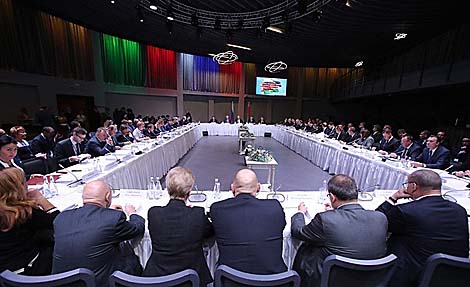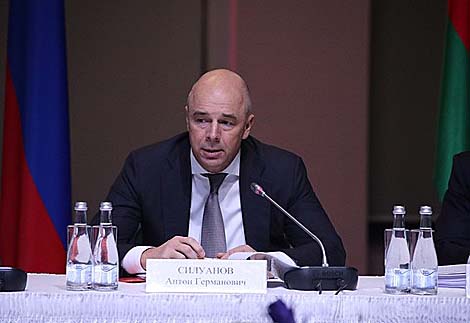Opinions & Interviews
Industrial cooperation, unimpeded supplies named Belarus’ key issues in relations with Russia

MINSK, 14 November (BelTA) – Industrial cooperation, removal of restrictions, and unhindered food supplies remain Belarus’ key issues in relations with Russia, Belarus’ Deputy Prime Minister Igor Petrishenko said at a meeting of the High Level Group of the Union State Council of Ministers on 14 November, BelTA has learned.
Igor Petrishenko named the agenda of the meeting extensive and well-balanced. It organically reflects all the work recently carried out by the parties within the Union State and bilateral relations. It also maximally goes in line with the agenda of the upcoming meeting of the Union State Council of Ministers.
“Key issues for Belarus have also included industrial cooperation, the removal and abolition of restrictive measures, unimpeded supplies of Belarusian food products to Russia,” the vice premier said. He added that he believes it extremely important to translate all the instructions and decisions of the heads of state and government on these issues into practice.
 According to Igor Petrishenko, special attention should be paid to the implementation of the Union State programs. “Here, there are both old (such as long approval procedures, delay in implementation and deadlines) and new problems,” he said. “In 2020 we may face a shortage of financial resources for the implementation of programs. In this regard, I would like to emphasize the importance of not missing those really important projects and programs that can bring tangible help to our people,” he added.
According to Igor Petrishenko, special attention should be paid to the implementation of the Union State programs. “Here, there are both old (such as long approval procedures, delay in implementation and deadlines) and new problems,” he said. “In 2020 we may face a shortage of financial resources for the implementation of programs. In this regard, I would like to emphasize the importance of not missing those really important projects and programs that can bring tangible help to our people,” he added.
Igor Petrishenko expressed confidence that the Group, which gathered in a new composition on 14 November, would be able not only to maintain continuity, but also reach a new, even higher level of bilateral cooperation. He added that the Group comprises the ambassadors of Belarus and Russia, who have full and reliable information on a wide range of issues related to bilateral cooperation.
 In turn, First Deputy Prime Minister, Minister of Finance of the Russian Federation, Anton Siluanov stressed that, in general, the agenda of the meeting was aimed at developing Union State integration, the removal of existing restrictions. The Group agreed to analyze previous decisions that were taken at various levels, including by the Union State government, to facilitate the implementation of the reached agreements.
In turn, First Deputy Prime Minister, Minister of Finance of the Russian Federation, Anton Siluanov stressed that, in general, the agenda of the meeting was aimed at developing Union State integration, the removal of existing restrictions. The Group agreed to analyze previous decisions that were taken at various levels, including by the Union State government, to facilitate the implementation of the reached agreements.







 print version
print version make home page
make home page add to bookmarks
add to bookmarks

